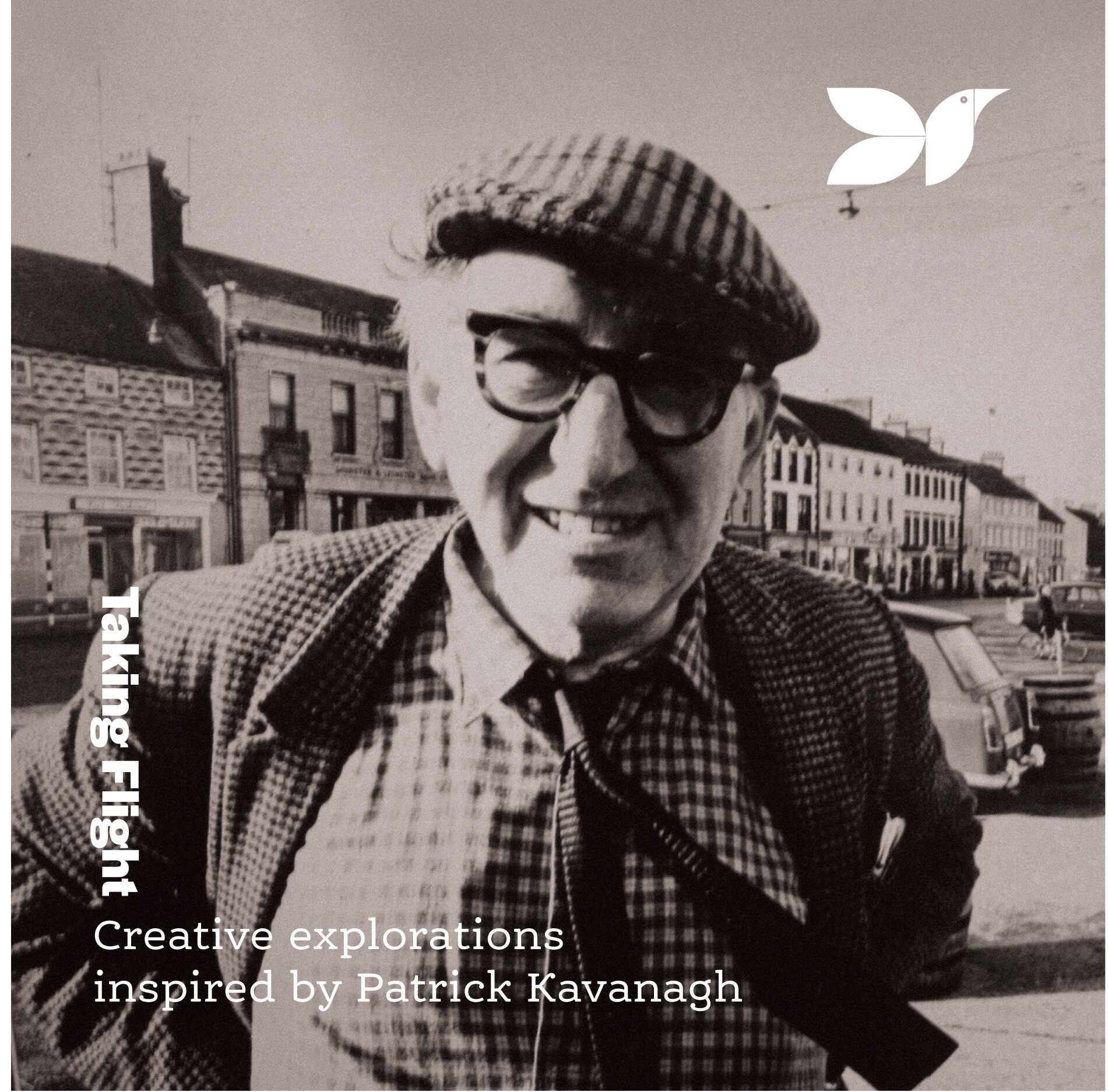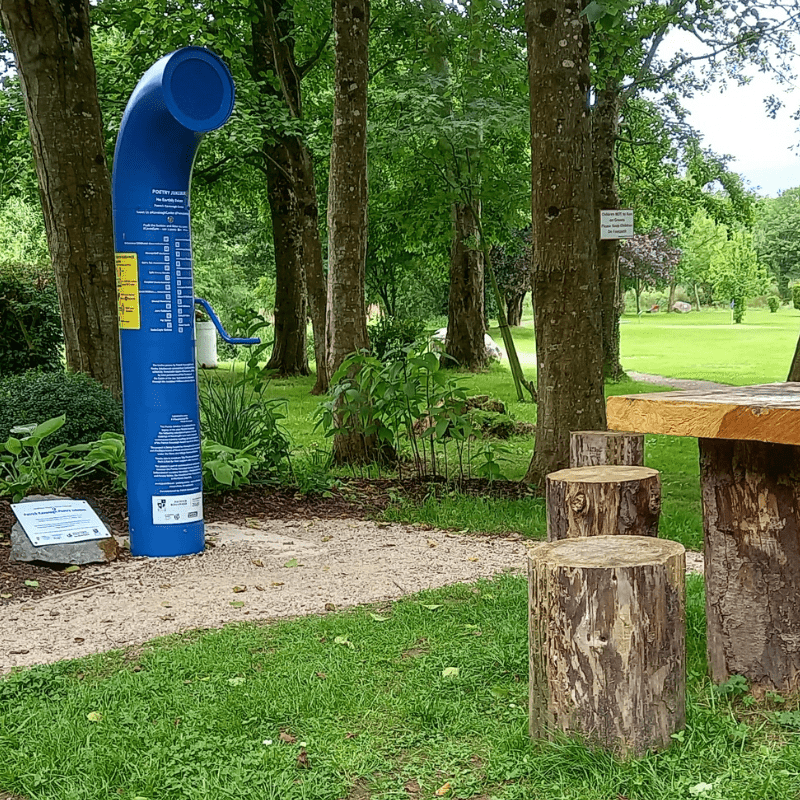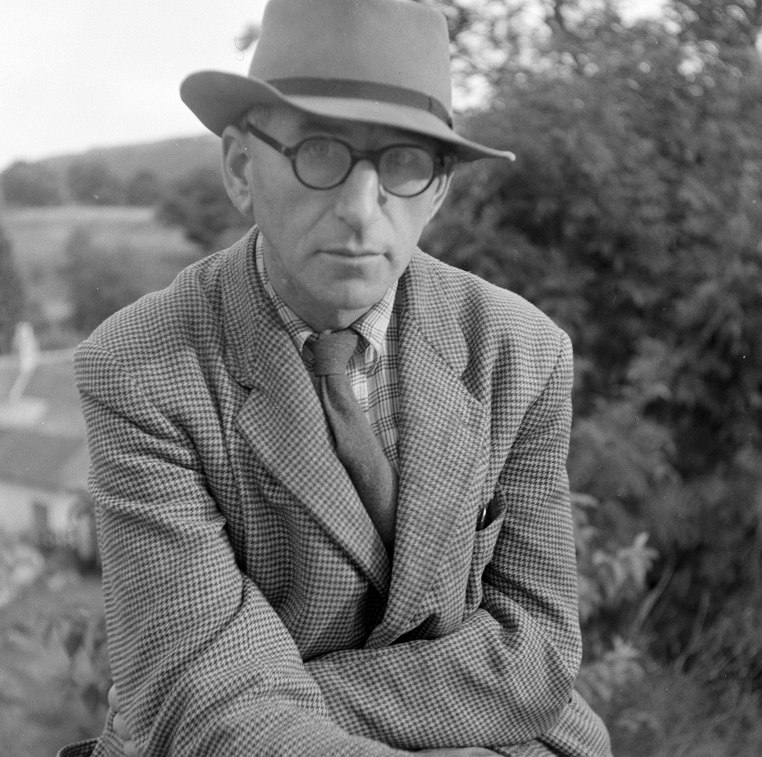This website uses cookies to help deliver its services. By using this website, you agree to the use of cookies as outlined in our Privacy Policy.
Patrick Kavanagh Poetry Award
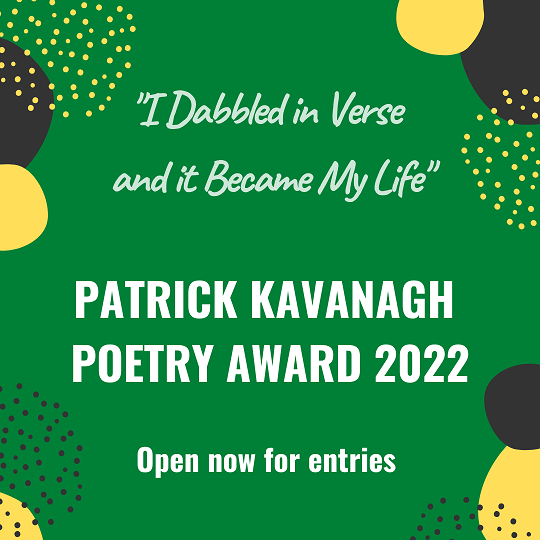
The Patrick Kavanagh Award is for emerging poets currently living in Ireland or with Irish heritage.
Entrants are asked to submit 20 poems for consideration having not yet published a collection of work. Typically, the award opens early summer in a given year with the award presentation taking place as part of the Patrick Kavanagh Weekend on the last weekend in September.
In 2021 the award celebrated 50 years since it’s inauguration by the Patrick Kavanagh Society. It has captured a diverse range of poetic voices at a time of transformative change in Ireland. Recipients of the award include Eiléan Ní Chuilleanáin, Paul Durcan, Pat Boran and Sinead Morrisey amongst others. In 2022 Ben Keatinge received the award for his collection ‘The Wireless Station’.
The 2023 edition of the Patrick Kavanagh Award is now open for entries. This year we welcome a new adjudicator, Victoria Kennefick author of acclaimed collection ‘Eat Or We Both Starve‘. The winning entry will be announced on the opening night of this years Kavanagh Weekend, Friday 29th September. They will also receive €2,000 in recognition of their achievement. The closing date for submissions is 5pm Thursday 24th August.
Download Patrick Kavanagh Poetry Award Guidelines 2023
For more details check out the press release for the 2023 award.
Patrick Kavanagh Poetry Award Recipients
- 1971 Sean Clarkin
- 1972 NO COMPETITION
- 1973 Eiléan Ní Chuilleanáin
- 1974 Paul Durcan
- 1975 John Ennis
- 1976 Aidan Carl Matthews
- 1977 Thomas McCarthy
- 1978 Rory Brennan
- 1979 Michael Coady
- 1980 Nuala Archer
- 1981 Harry Clifton
- 1982 Peter Sirr
- 1983 Greg Delanty
- 1984 Tom O'Malley
- 1985 Roz Cowman
- 1986 Padraig Rooney
- 1987 Anthony Glavin
- 1988 Angela Green
- 1989 Pat Boran
- 1990 Sinead Morrissey
- 1991 Sheila O'Hagan
- 1992 Aine Millar
- 1993 Conor O'Callaghan
- 1994 Celia de Fréine
- 1995 William Wall
- 1996 Bill Tinley
- 1997 Fr Michael McCarthy
- 1998 Carmel Fitzsimons
- 1999 Eibhlin Nic Eochaidh
- 2000 Joseph Woods
- 2001 Ann Leahy
- 2002 Alice Lyons
- 2003 Manus McManus
- 2004 Joseph Horgan
- 2005 Dave Lordan
- 2006 Enda Coyle-Green
- 2007 Conor Carville
- 2008 Geraldine Mitchell
- 2009 Martin Dyar
- 2010 Connie Roberts
- 2011 Helena Nolan
- 2012 Caoilinn Hughes
- 2013 Rafiq Kathwari
- 2014 John Fitzgerald
- 2015 John Mee
- 2016 Laurance O'Dwyer
- 2017 Ruth Timmons
- 2018 Conor Cleary
- 2019 Scott McKendry
- 2020 NO COMPETITION
- 2021 Jerm Curtin
- 2022 Ben Keatinge
- 2023 Lauren O'Donovan
Sean Clarkin
Thoughts on Winning the Kavanagh award
Publications
NO COMPETITION
Thoughts on Winning the Kavanagh award
Publications
Eiléan Ní Chuilleanáin
Thoughts on Winning the Kavanagh award
Publications
Paul Durcan
Thoughts on Winning the Kavanagh award
Publications
John Ennis
Thoughts on Winning the Kavanagh award
Publications
Aidan Carl Matthews
Thoughts on Winning the Kavanagh award
Publications
Thomas McCarthy
Thoughts on Winning the Kavanagh award
Publications
Rory Brennan
Thoughts on Winning the Kavanagh award
Publications
Michael Coady
Thoughts on Winning the Kavanagh award
Publications
Nuala Archer
Thoughts on Winning the Kavanagh award
Publications
Harry Clifton
Thoughts on Winning the Kavanagh award
Publications
Peter Sirr
Thoughts on Winning the Kavanagh award
Publications
Greg Delanty
Thoughts on Winning the Kavanagh award
Publications
Tom O'Malley
Thoughts on Winning the Kavanagh award
Publications
Roz Cowman
Thoughts on Winning the Kavanagh award
Publications
Padraig Rooney
Thoughts on Winning the Kavanagh award
Publications
Anthony Glavin
Thoughts on Winning the Kavanagh award
Publications
Angela Green
Thoughts on Winning the Kavanagh award
Publications
Pat Boran
Thoughts on Winning the Kavanagh award
Publications
Sinead Morrissey
Thoughts on Winning the Kavanagh award
Publications
Sheila O'Hagan
Thoughts on Winning the Kavanagh award
Publications
Aine Millar
Thoughts on Winning the Kavanagh award
Publications
Conor O'Callaghan
Thoughts on Winning the Kavanagh award
Publications
Celia de Fréine
Thoughts on Winning the Kavanagh award
Publications
William Wall
Thoughts on Winning the Kavanagh award
Publications
Bill Tinley
Thoughts on Winning the Kavanagh award
Publications
Fr Michael McCarthy
Thoughts on Winning the Kavanagh award
Publications
Carmel Fitzsimons
Thoughts on Winning the Kavanagh award
Publications
Eibhlin Nic Eochaidh
Thoughts on Winning the Kavanagh award
Publications
Joseph Woods
Thoughts on Winning the Kavanagh award
Publications
Ann Leahy
Thoughts on Winning the Kavanagh award
Publications
Alice Lyons
Thoughts on Winning the Kavanagh award
Publications
Manus McManus
Thoughts on Winning the Kavanagh award
Publications
Joseph Horgan
Thoughts on Winning the Kavanagh award
Publications
Dave Lordan
Thoughts on Winning the Kavanagh award
Publications

Enda Coyle-Green
Enda Coyle-Greene was born in Dublin and lives in Skerries. The manuscript of her debut collection, Snow Negatives, won the Patrick Kavanagh Award in 2006 and was published by the Dedalus Press in 2007. Her subsequent collections are Map of the Last (2013) and Indigo, Electric, Baby (2020) both also from the Dedalus Press.
Enda’s work has been published, anthologised and broadcast widely. She holds an M.A. (Dist.) from the Seamus Heaney Centre for Poetry at Queen’s University, Belfast and is co-founder and Artistic Director of the Fingal Poetry Festival. She received a Patrick and Katherine Kavanagh Fellowship in 2020.
Thoughts on Winning the Kavanagh award
It was my birthday. I was in a restaurant with my family and remember wondering, idly, who had won ‘the Kavanagh’ that year, never imagining that it might be me. Two days later, when my mobile rang at work, I was expecting a call of a probably upsetting nature and bolstered myself to deal with that as I crossed the floor towards reception and privacy.
I could say that I was floored (almost literally) but that wouldn’t do justice to my reaction to Rosaleen Kearney’s calmly imparted news. Anyone who was there with me on that otherwise normal Friday midday will attest to my stunned disbelief. A board meeting was interrupted and the entire office came to a standstill on what is the busiest day of the week for a freight company. I drove home later with the back seat of my car filled with the flowers my workmates had bought me.
Afterwards, I described winning the Patrick Kavanagh Award as a watershed moment, one after which nothing was ever the same. It is something I reach for on those days of doubt that bedevil every writer. Kavanagh is a totemic poet for me, and the award is an honour I feel especially blessed by. I was holding it close to my heart later that day when, inevitably, that other call came. I still do.
Publications
Snow Negatives (Dedalus, 2007) Winner of the Patrick Kavanagh Award 2006
Map of the Last (Dedalus, 2013)
Indigo, Electric, Baby (Dedalus, 2020)
Conor Carville
Thoughts on Winning the Kavanagh award
Publications
Geraldine Mitchell
Thoughts on Winning the Kavanagh award
Publications
Martin Dyar
Thoughts on Winning the Kavanagh award
Publications
Connie Roberts
Thoughts on Winning the Kavanagh award
Publications
Helena Nolan
Thoughts on Winning the Kavanagh award
Publications
Caoilinn Hughes
Thoughts on Winning the Kavanagh award
Publications
Rafiq Kathwari
Thoughts on Winning the Kavanagh award
Publications
John Fitzgerald
Thoughts on Winning the Kavanagh award
Publications
John Mee
Thoughts on Winning the Kavanagh award
Publications
Laurance O'Dwyer
Thoughts on Winning the Kavanagh award
Publications
Ruth Timmons
Thoughts on Winning the Kavanagh award
Publications
Conor Cleary
Thoughts on Winning the Kavanagh award
Publications

Scott McKendry
McKendry was born in Belfast in 1987. His writing has appeared in journals on both sides of the Atlantic. His debut pamphlet, Curfuffle, was Poetry Book Society Autumn Choice 2019 and GUB, his first full collection, is forthcoming. After working as an electrician, McKendry returned to full-time education in 2011. His doctoral thesis – which was awarded the Miss Margaret Cuthbert Frazer Research Bursary for research into dialect in Irish poetry – was completed in 2021. McKendry is currently an Irish Research Council Fellow at Trinity College Dublin, where he’s writing a monograph on canon and aesthetics in northern Irish poetry.
Scotts winning collection was titled ‘Hammer and Environs’
Thoughts on Winning the Kavanagh award
The inimitable John Banville presented me with my award. After taking the stage to talk at some length about himself and then democracy, going back to Ancient Athens and thus well over time, he caused a huge row when he brought up the ‘Troubles’. An esteemed historian asked Banville what role his journalism played in ‘promulgating the plight of the northern minority’. The audience began to argue amongst itself, but their ire was directed mainly at the novelist, who sat there calm and defiant. I couldn’t breathe for laughing throughout. Banville eventually came down, and in a right old huff, after the parting words ‘I have won awards. They mean nothing’. I remain grateful for this, as it didn’t half take the edge off before I read a few poems. The night was an education, a living drama of contemporary Ireland, where cosmopolitanism crashed into Inniskeen to clash with parishioners. Being from Belfast – a web of parishes more than a cosmopolis – I loved it.
Publications
Curfuffle (The Lifeboat, 2019)
Work included in The future always makes me so thirsty: New Poets from the North of Ireland (Blackstaff, 2016), edited by Sinéad Morrissey and Stephen Connolly.
NO COMPETITION
Thoughts on Winning the Kavanagh award
Publications

Jerm Curtin
The winner of the 2021 Patrick Kavanagh Award was Jerm Curtin, from Boherbue in north-west Cork. He lives in Spain where he teaches English as a foreign language.
The judge, the poet and novelist Brian Lynch, said, ‘Although this year’s competition had to be held at short notice, the response was unexpectedly large. I think Covid and the isolation associated with it led to a great deal of soul-searching and a pent-up demand for communication, which the Kavanagh Award released.’
He described Jerm Curtin’s collection, ‘The Drowned City’, as a vision of Cork permanently under water due to climate change – cars in the streets are replaced with kayaks – accompanied by a tender study of Noreen Daly, a recognisable but fictitious aging woman from Kanturk living alone in the city.
‘Curtin combines the sensitivity to language of a poet with a novelist’s eye for character’, Brian Lynch said.
Thoughts on Winning the Kavanagh award
Publications
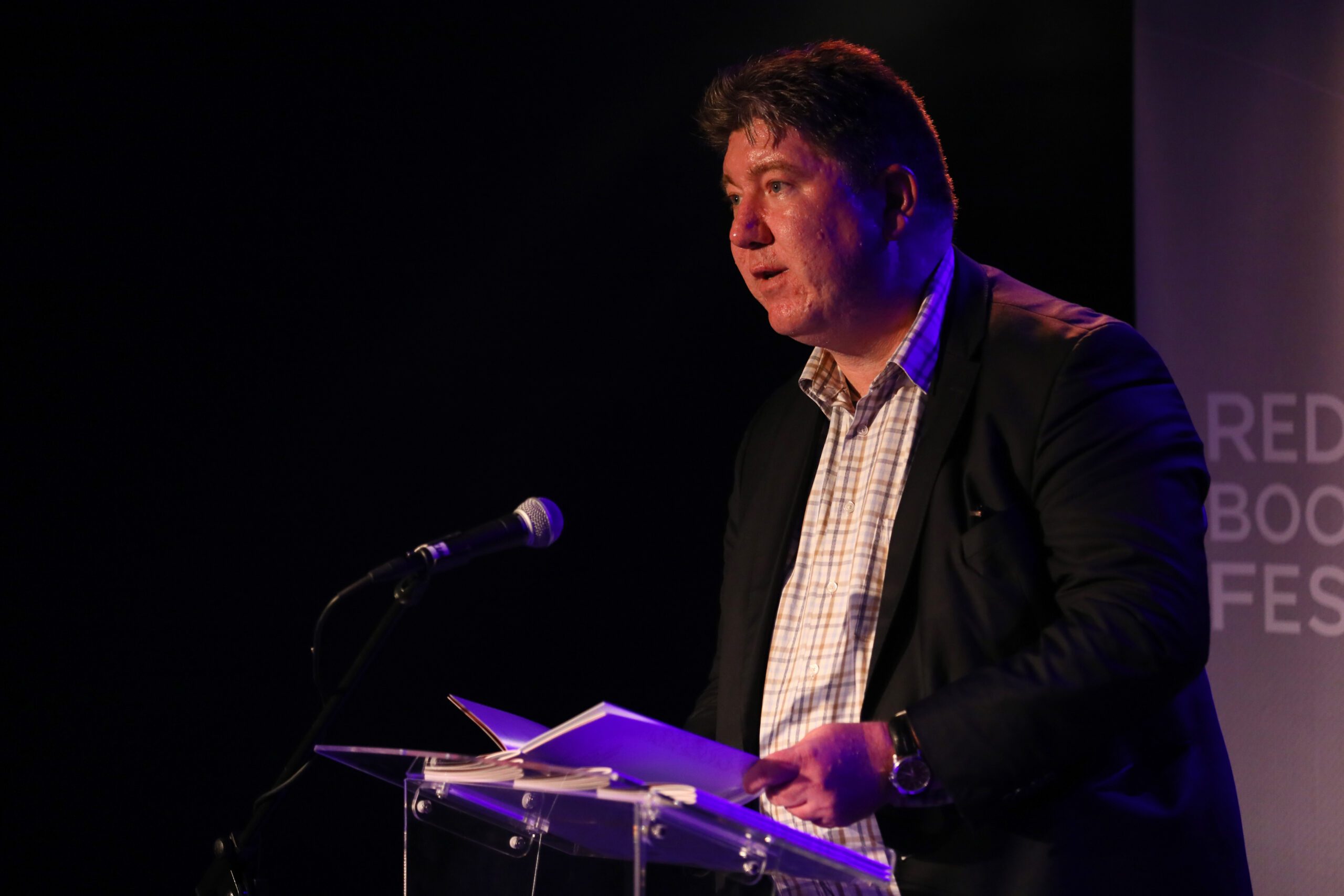
Ben Keatinge
Ben Keatinge was born in Dublin in 1973 and educated at the School of English, Trinity College Dublin where he is currently teaching Irish-American poetry. Among his academic publications is the collection, Making Integral: Critical Essays on Richard Murphy (Cork UP, 2019). He taught English literature in North Macedonia for nine years, travelling extensively in the Balkans, and his poetry has taken inspiration from the connections between Ireland and eastern Europe.
The judge, poet Noel Monahan, described Ben Keatinge’s collection, ‘The Wireless Station’, as subtle and sensitive, communicating the essential loneliness of writing and the isolation of the poet and poetry in general. The final poem in the collection a particular highlight. Of ‘Okapi’ (a rare animal found in the Congo), Monahan says ‘in many ways a subtle metaphor for the poet in isolation. The collection ending as it began, with a subtle sense of communication. Always branching outwards, always crossing borders …’
Thoughts on Winning the Kavanagh award
Publications
Ben’s poems have been published in The Irish Times, The Dalhousie Review, Archipelago, Agenda and anthologised in Writing Home (Dedalus, 2019), Hold Open the Door (UCD Press, 2020), Local Wonders (Dedalus, 2021) and Chasing Shadows (Lapwing, 2022).

Lauren O'Donovan
Lauren O’Donovan is a writer and mother from Cork. In 2023, she won the Cúirt New Writing Prize in Poetry and was shortlisted for Listowel Writers’ Week Collection Award, Poetry Business Book & Pamphlet Competition, and the Fish Poetry Prize. Lauren has work recently published or upcoming in: Rattle Magazine, Southword, The North, Skylight 47, Honest Ulsterman, The Waxed Lemon, and The Storms. In 2022, Lauren was awarded Arts Council funding and a Munster Literature Centre Mentorship with Afric McGlinchey. Lauren is a graduate of UCC, co-founder of Lime Square Poets, and an editor at HOWL New Irish Writing.



